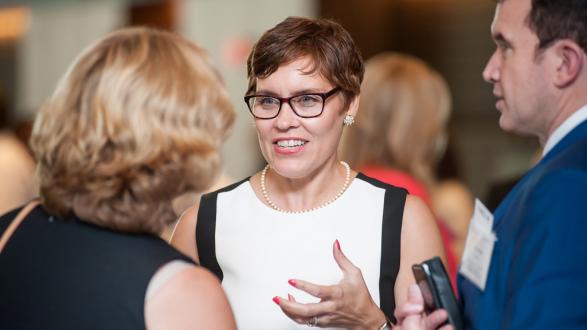There is a longstanding concern that elite perspectives shape the views and work of prominent policy institutions. Critics rightly say that community impact suffers when civil society institutions are so far removed from the lives and struggles of average Americans.
A recent report from the Council on Foundations finds that the proportion of leaders who are women and/or racial and ethnic minorities has been stagnant in philanthropic institutions for the past decade. Leadership at the Ford Foundation, an institution recognized for its global reach and impact in the social sector, shows different results in spite of that trend. Since beginning his tenure, Ford’s CEO Darren Walker has brought seven new trustees to the foundation who represent constituencies typically absent from board rooms. A top industry leader like Walker can set the bar for social sector institutions around board decisions.
We at the Pacific Council want to set the bar for foreign policy institutions in a similar way, among our members, leaders, contributors, and—importantly—staff.
Our organization wants to set the right example in our field and strives to be creative in how we look beyond traditional avenues for candidates in our hopes of accomplishing that.
In many ways, the Pacific Council staff embraces diversity of perspective reflective of a major metropolis. We bring diversity through different religions, political affiliations, sexual orientations, and family and immigration history in the United States. Some of us hail from rural America and working-class communities, and among us are first-generation college graduates. We are gender balanced 60:40, women to men. Our CEO is a man. Our executive director (that’s me) is a woman. We all have different resumes and life experiences. But to build the best team, we know there is always work to be done to continue to represent our community of global citizens.
Why is it important to me to share this vision of diversity for staff at the Pacific Council on International Policy? Inclusivity is central to our core values. It facilitates connections and community. Some time ago, we activated a committee comprised of directors, staff, and members to identify enablers and potential inhibitors for an organizational environment that is diverse and inclusive. People are more likely to be drawn to our organization and satisfied with their experience if they can connect with the organization’s representatives and staff who understand their values and interests.
Our organization wants to set the right example in our field and strives to be creative in how we look beyond traditional avenues for candidates in our hopes of accomplishing that. Part of that involves strengthening our relationships with diverse communities in Los Angeles and looking for talent in sometimes unlikely and overlooked places.
The Pacific Council strives to holistically embody the melting pot that America claims to be and that our home in Los Angeles exemplifies.
We also need your help. As we grow and think about the institution we want to build, we know that it is imperative to consider how each person adds to the overall diversity of approaches and experiences of the Pacific Council. How can we improve our recruitment process to ensure we are reaching the right candidates? What can you do to introduce us to the leaders you know who might not be in our immediate policy recruitment circles or even familiar with our work?
The Pacific Council strives to holistically embody the melting pot that America claims to be and that our home in Los Angeles exemplifies. We’re currently hiring, so do let me know who you have in mind, and please share our job posts widely.
_______________________
Jennifer A. Faust is the executive director of the Pacific Council on International Policy.




